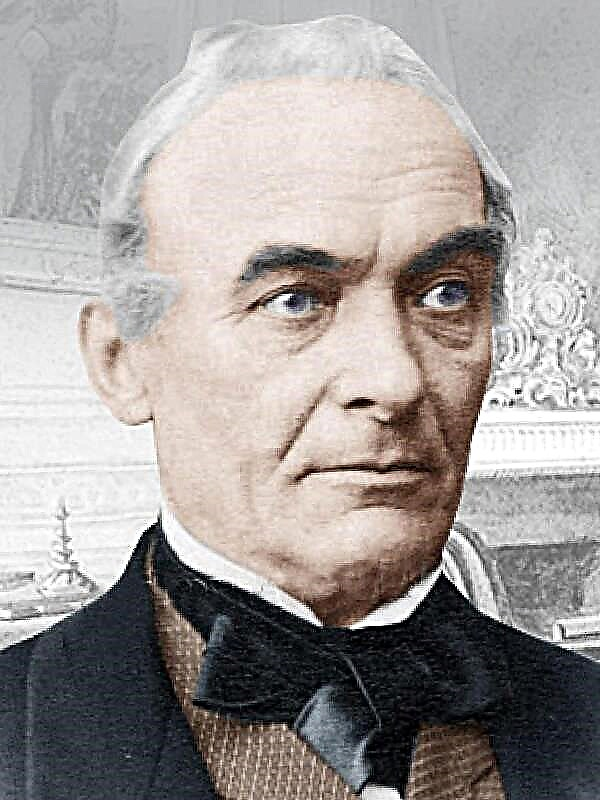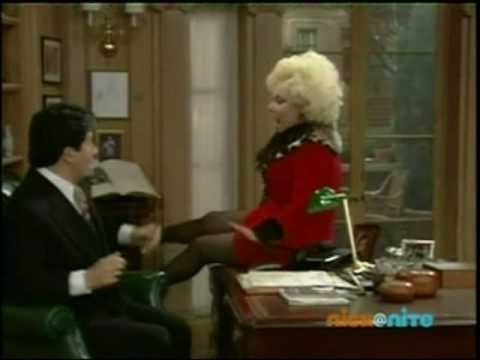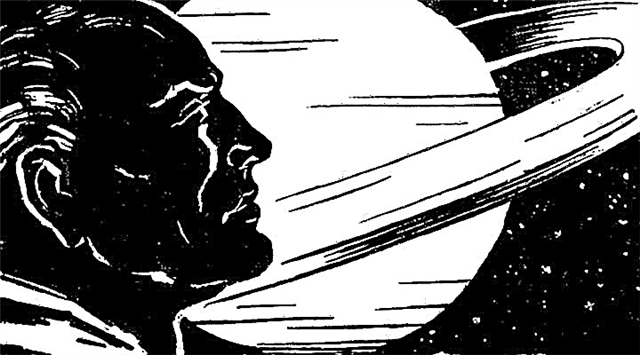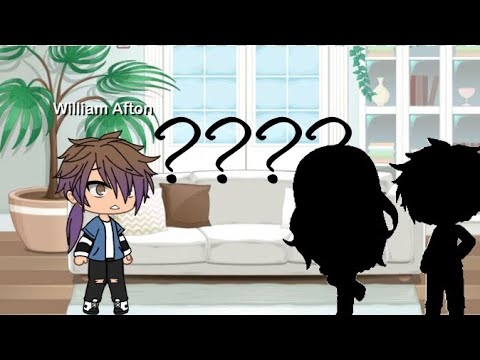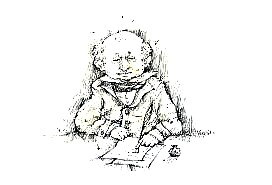: The cycle reveals all the charm and beauty of Italy, the customs of the southerners, narrates about the labor movement in the early twentieth century and extraordinary life stories.
The quotation from the cycle by H. H. Andersen was taken as the epigraph: “There are no fairy tales better than those created by life itself.”
I
“Tram employees went on strike in Naples: the chain of empty wagons stretched out over the entire length of the Kiyia Riviera.” Soldiers and a man in a cylinder appear, threatening striking conductors and train drivers. Then the protesters lay on the rails. People on the streets follow their example and support them.
“In half an hour across the whole Naples the trams of the tram raced with a squeal and a squeak, the winners stood at the sites, grinning cheerfully.”
II
"In Genoa, in a small square in front of the station, a dense crowd of people gathered - workers predominate, but there are a lot of solidly dressed, well-fed people." Everyone expects the arrival of hungry children of Parma strikers. The owners are not inferior, it is difficult for the workers, and they send children here. The kids are greeted with the anthem of Garibaldi.
"Almost all the children are seized, they are sitting on the shoulders of adults." They are fed on the go, the children rejoice, the crowd rejoices, glorifies Italy and socialism.
III
“The city is festively bright and colorful, like a richly embroidered priest's robe; in his passionate cries, trembling and groans, the singing of life sounds liturgical. ” People on the sidewalk are preparing to dine. An old man with a long nose of a parrot sees him dripping from a fiasco carried by a boy, like rubies, drops of wine, and shouts to him about it. The old man pours this wine, and the curly girl passing with her mother throws flower petals into the bowl, and they swim, "just like pink boats." The gift of the child is the gift of God, says the old man and blesses the girl.
IV
"A calm blue lake in a deep frame of mountains, covered with eternal snow, the dark lace of gardens lush folds falls to the water ... Near a pile of rubble sits a black as a beetle worker, with a medal on his chest, a bold and affectionate face." He tells a passerby how he, Paolo, and his father worked - piercing the womb of a mountain to connect the two countries. Father died without finishing work. Thirteen weeks after his death, people from both sides met. Paolo considers this day to be the best in his life: “they kissed the conquered mountain, kissed the earth ... and I loved her like a woman!” Near the grave of his father, he says: “People won. Done, father! ”
V
The young musician describes what kind of music he wants to write. The boy goes to the big city: “... the bloody sunset flame has not died out yet over him ... here and there, like wounds, glasses sparkle; the ruined, tormented city - the place of a tireless battle for happiness - is bleeding ... "" And after the boy the night goes silently, covering the distance from where he left with the black mantle of oblivion. " The boy, alone, small, calmly goes to the city. "The city lives and groans in the delirium of the multifaceted desires of happiness." What will meet the boy?
VI
"The sea is dormant and breathing opal fog, the bluish water glistens with steel, the strong smell of sea salt pours ashore." There are two fishermen on the stones: an old man and a young "black-eyed dark-skinned boy". A young man talks about a rich young American, who skated until the morning. During the walk they were silent. The old man remarks: “True love ... beats in the heart like lightning, and dumb like lightning.” By morning, the young man wanted only one thing: to get it, at least for one night. “It's easier,” the old man remarks. “Little happiness is always more honest,” the young man replies.
VII
In a small station between Rome and Genoa, a one-eyed old man enters the compartment. He talks about his life. He has thirteen sons and four daughters. He lost his eye in childhood when a stone hit him. At 19, he met his love. The girl, like him, was very poor.But they got married, and kind people helped them all - from the crib that became a home for young people, to the statue of the madonna and utensils: “... there is no better fun, how to do good to people, believe me, there is nothing more beautiful and fun than this ! "
VIII
Seeing a gray-haired man of about thirty years old, a fellow narrator introduces him to the story of this man.
He is an ardent socialist. At meetings, he noticed a girl with whom they increasingly entered into an ideological confrontation. The girl was a zealous Catholic, and her religion strongly opposed socialism. They tried to convince each other, to prove their case. And although the girl was touched for his soul by his fiery speeches about the liberation of man, she could not renounce God. Love came to them. But she refused to marry at City Hall, and he refused to get married in the church. Soon the girl fell ill with consumption. Before her death, she recognized with her mind the truth of her beloved, but “her heart could not agree” with him.
Recently, a man married his student, and together they go to the grave of the deceased.
IX
“Glorify the woman - Mother, the inexhaustible source of all conquering life!”
Timur-leng, nicknamed the infidel Tamerlan, spilled rivers of blood, avenging the death of his son Dzhigangir. Feasting, the lame Timur asks his court poet Kermani how much he would give for him. Kermani calls Timur’s belt price and says that the khan himself is not worth a penny! “That's how the poet Kermani spoke with the king of kings, a man of evil and horror, and may the glory of the poet, friend of truth, forever be above the glory of Timur for us.”
But Mother comes to the king - a woman from Italian lands, from near Salerno, she is looking for her son, who is now with the khan. She demands to return it. “All that is beautiful in man - from the rays of the sun and from the milk of the Mother - this is what saturates us with the love of life!” And Timur orders to send messengers to all ends of the lands he conquered and find the woman’s son.
X
A gray woman is walking along a narrow path between the gardens. She is a widow, "her husband, a fisherman, soon after the wedding left to fish and did not return, leaving her with a child under her heart." The child was born a freak: “his arms and legs were short, like fins of a fish, his head swollen into a huge ball ...” She worked tirelessly to feed him. And he only ate and lowed. She was beautiful, many men sought her love, but the woman rejected all, fearing to give birth to a freak again.
Once a child was poisoned by something and died. After that, she became simple, like everyone else.
XI
The city is surrounded by a tight ring of enemies. People are exhausted by work and hunger. In the darkness flashes a woman, Marianne, the mother of the traitor, who now leads the conquerors. Her heart is like scales: it weighs the love for her native city and her son, but she cannot understand what is easier, what is harder. In the dark, some woman thanks the Madonna for her son falling for her hometown and cursing the womb of Marianne, who gave birth to a traitor. Marianne goes outside the city and goes to her son's camp. Realizing that she will not be able to convince him to save a city where every stone remembers him, Marianne kills her son, who has fallen asleep on her lap, and then stabs her heart with a knife.
Xii
When Guido was sixteen years old, he went fishing in the sea with his forty-year-old father. The wind hit them four kilometers from the coast. The father felt that he would not return alive and passed on all his knowledge of the sea and fish to his son while they drifted on the surging waves. They held onto the barge for a long time. Finally, they quickly rushed to the shore, the father crashed on the black ribs of the rocks. Guido, too, was crumpled by order, but remained alive. And now, having lived sixty-seven years, Guido admires his father, who, sensing the approach of death, found the strength and time to convey to him everything that he considered important.
Xiii
Giuseppe Chirotta and Luigi Mat quarrel. Giuseppe says that he recognized the sweetness of the caresses of Luigi's wife. Mata's wife cannot prove her innocence, and Luigi leaves her and leaves. Good old women take a woman under their guardianship, and bring the liar out into the open: Chirotta said this from evil.He is tried for slander and the inflicted shame of his own wife and children. People decide that Giuseppe will pay the abandoned woman half of her earnings. Luigi, upon learning of his wife's innocence, asks her to return to him. And he writes a letter to Chirrota: if Giuseppe descends from the island to the mainland, Luigi and his three brothers will slaughter him: “Live without leaving the island until I tell you - it is possible!”
XIV
Beyond the wine decanter, Giovanni, a large-headed, broad-shouldered guy, tells Vincenzo, a bony house painter with a dreamer's smile, how he became a socialist and suggests that Vincenzo compose verses about it.
Rota Giovanni was sent to Bologna - the peasants were worried there. At first, the oppressed poured tiles, stones, and sticks on the soldiers. A doctor came to them with a very beautiful blonde, a noblewoman. She spoke with the doctor in French - Giovanni knew this language. The blonde condemned socialism and did not consider herself equal to people of "bad blood". Having learned what she was talking about, the soldiers gradually switched to the side of the peasants. A soldier with flowers was escorted from the village. Peasants could teach the blonde how to value honest people.
“Yes, it is very suitable for a poem!” - the painter answers.
XV
A woman appears in the hotel’s garden: “this is an old woman of very tall stature, a dark, stern face, severely frowning eyebrows.” Behind her is a hunchback with a square body. These are the Dutch, brother and sister. My sister was four years older than her brother. Since childhood, she spent a lot of time with him. Then the hunchback began to show interest in building houses.
When the hunchback was 13 years old, his whole room was littered with drawings, bars, tools. All this poured on the sister when she came in. Once the sister said: “You are doing this on purpose, you freak! - and hit him on the cheek. " The next time the hunchback invited the girl to touch the rat trap, and she screamed wildly in pain. After that, she began not to visit him so often. "She was nineteen years old, and she already had a groom when her father and mother died at sea."
After the betrothal, the groom built a house. Once he persuaded the hunchback to go see him. When they two ascended the upper tier of the forests, they fell from there. The brother "only dislocated his leg and arm, broke his face, and the groom broke his spine and split his side."
On the day of his adulthood, the hunchback announced that he would build a house outside the city for all the city freaks, then perhaps he would become a happy person. But the sister gave this building to the city under a psychiatric hospital, and her brother became the first patient. Seven years was enough to turn into an idiot. Seeing "that her enemy was killed and will not rise again", her sister took her brother in her care.
XVI
In the morning, a fat man, a man in gray whiskers, a red round man with an abdomen, and two ladies appear on the deck: a young, full-bodied, and an older, pointed-nosed man. They discuss Italy: there is a lot of disgrace, disgusting coffee, and "everyone is terribly similar to the Jews." A man appears on the deck, "in a hat of gray curly hair, with a large nose, cheerful eyes." Only the fat man answers his bow from the Russians. Speaking with a footman, this man praises the Russians. The fat man translates his words to his fellow citizens. Ginger notes: “They are all amazingly ignorant of us ...” - “They praise you, but you find it out of ignorance ...” the fat man answers him.
The whisker share with compatriots the idea: it is necessary for the peasants to expose several dozen buckets of vodka at the expense of the treasury - they say they will get drunk and kill each other themselves.
“Glowing with copper, the ship is affectionately and quickly” approaching the shore.
XVII
A fifty-year-old “shedding” man sits at a table in a cafe. Nearby sits a broad-chested man with agate eyes, Tram, and greets the first, "Mr. Engineer." Tram is looking forward to a new engineer car. From the conversation it is clear that Tram is a socialist and organizes riots. He notes that now people enjoy the achievements of famous ancestors.The senior man, saying goodbye, advises Tram to study: "An engineer with good imagination would have developed from you."
XVIII
If a person does not find a piece of bread in his native land, “driven by poverty”, he leaves for the south of America. A woman, as a motherland, attracts herself, so many marry before leaving. In the village of Sarachena, the beautiful Emilia Bracco lives. The village boys dream of her, but she keeps her honor as a married woman. The old mother-in-law insults the daughter-in-law with suspicions, and one day Emilia kills the old woman with an ax in the forest: “It is better to be a murderer than to be reputed for shameless, when she is honest,” she tells the carabinieri. Emilia is given four years in prison.
To her fellow villager Donato Guarnachia, his mother writes about the relationship between her daughter-in-law and her father. Donato returns to his homeland, and, finding out that this is true, shoots both his father and his wife. At the trial, Donato is acquitted.
Emilia is released. A spark flares between her and Donato, and now they themselves are following the path of criminal passion, destroying the ideals in whose name they shed blood. They are thinking of running across the ocean.
Upon learning of this, Emilia's mother in the church deals two blows to the praying Donato on the head with the letter V, which means vendetta. He remains alive, and his mother is horrified by this. “Soon this woman will be judged and, of course, seriously convicted, but - what can a blow of a person who considers himself entitled to deliver blows and wounds teach him?”
XIX
"The old man Giovanni Tuba, even in his early youth, changed the earth for the sake of the sea." As a boy he was attracted to the blue eye of the sea. He went fishing on weekends. “Here he hangs on the edge of a pinkish-gray rock, lowering his bronze legs; black, plum-large, his eyes drowned in clear greenish water; through her liquid glass they see a wonderful world, better than all fairy tales. ”
But when he was eighty, he comes to live in his brother’s hut. The children and grandchildren of a brother are too hungry and poor to be kind. It’s hard for the old man among the people, and one evening he goes to the sea, prays, takes off his tattered clothes and enters the water.
XX
The ancient elder Ettore Cecco receives a postcard with a picture of his sons - Arturo and Enrico. They have been arrested for organizing a strike of workers. Cecco is illiterate, an inscription in a language unknown to him. He feels the wrong. The wife of a friend of the artist, who speaks English, answers the old man: they are in prison, because they are socialists. “This is politics,” she explains. With this postcard, the old man goes to the Russian signor, who is reputed to be an honest and kind person, and he says that Chekko is a happy father: "they are in prison for growing up as honest guys."
XXI
On the night of the birth of the Baby, all people rejoice. Children run around in the square, scattering crackers. At the end of the mass, a crowd of people flows from the church with a motley lava. The nursery of the Baby is carried to the old church. Children rejoice and look at the figures: what has been added since last year? They sing pagan songs and songs with a biblical plot. "In the old temple, children's laughter rings more and more lively - the best music of the earth." People celebrate before dawn.
XXII
The main pride of the quarter of St. Jacob is Nunch, a merchant in vegetables, the best dancer and the first beauty. Foreigners offered her money, but she didn’t want to know other people’s men: Nuncha didn’t refuse only to her own, but she never went against her desires: “once you do something unwillingly, you’ll lose your respect for yourself forever.”
The day comes when Nunchi's daughter, Nina, is no longer inferior to her mother in beauty, but behaves modestly. "As a mother - she was proud of her daughter's beauty, as a woman - Nuncha could not help but envy her youth." Finally, Nina tells her mother that her turn has come. Enrico who came back from Australia likes Nina, and Nuncha plays with him and this disturbs her daughter. Nuncha backs away from the man.
One day, Nina tells the dancing mother with everyone: "... this is out of your years, it's time to spare the heart."
Nuncha offers his daughter a race: they will run three times to the fountain without resting. Mother easily defeats Nina. It's past midnight, and Nuncha is dancing. Before the last dance, she screams and falls dead.
XXIII
At night, an old fisherman and a young soldier, his nephew, are sitting on the seashore. The old man notices him that he was well loved in the old days, and women were valued more. The fisherman tells the story of the Galliardi family, now they are nicknamed his grandfather - Sentsamane (Bezrukiy). The middle son, Carlone, was about to marry smart girl Julia. But the Greek hunter was also in love with a girl. Having not achieved reciprocity, he decided to get it by deceit and presented to people everything as if he had dishonored Julia. Carlone believed and hit the girl in the face. Later, after learning the truth, he killed a Greek and chopped off his hand: “The hand that struck my beloved innocently - insulted me, I cut it off ... I now want you, Julia, to forgive me ...” Then Carlone got married on Julia, and they lived until old age.
Fisherman's nephew considers Carlone a stupid savage. The old man replies: "Your life in a hundred years will also seem stupid ... If only someone remembers that you lived on earth ..."
XXIV
Mother and sister accompany their son and brother to Rome. The young man is a socialist. He leaves his city because of a strike. His colleague Paolo promises to protect the exiled mother and sister and continue their business in the city. He will not be lost, says Paolo. “He has a good mind, a strong heart, he knows how to love and easily makes others love him. And love for people - these are indeed the wings on which a person rises above everything ... "
Xxv
On the island under the rock, strong men dine in rags. The middle-aged, humpback gray-haired man tells the story of his youth.
Andrea Grasso came to them in the village as a beggar, but after a few years became a rich man. He hired the poor and abused them. Once between Grasso and the narrator, a skirmish occurred. He asked this evil and greedy man to leave, and Grasso poked him with a knife, but not deeply. The guy kicked the offender "as pigs are beaten." The narrator was twice unjustly imprisoned for clashes with Grasso. The third time the narrator came to church. Grasso saw his enemy, and he was defeated by paralysis. After seven weeks, Grasso died. “And people created some kind of fairy tale about me,” the man ends his story.
XXVI
"Pepe is about ten years old, he is fragile, thin, fast, like a lizard." Some signora instructs him to take her basket of apples to her friend and promises a soldier. Pepe returns to her only in the evening. As he walked across the square, the boys began to bully him, and Pepe attacked them with beautiful fruits from the garden of the esteemed Signora.
The boy’s sister, “much older, but not smarter than him,” settles in as a servant in the house of a wealthy American. Upon learning that the owner has many trousers, Pepe asks his sister to bring him one. An American who caught them with cut trousers wants to call the police. But Pepe answers him: “... I wouldn’t do it if I had a lot of trousers, and you have not a single pair! I would give you two, perhaps three pairs, even ... ”The American laughs, treats Pepe with chocolate and gives him a franc.
XXVII
"On a moonless night of Holy Saturday ... a woman in a black cloak slowly walks." Musicians are floating behind her. This is a procession of the last sufferings of Christ. But a reflection of red fire flashes ahead. A woman rushes forward. Two figures appear on the square in the light of torches: "a fair-haired, familiar figure of Christ, the other in a blue tunic - John, the beloved disciple of Jesus." A woman walks up to them and takes off her hood: this is the radiant Madonna. People praise her.
The old women, even though they know that Christ is a carpenter from Pisacane Street, John is a watchmaker, and Madonna is a gold seamstress, they pray and thank the Madonna for everything.
It is getting light. People go to churches. "And we all will rise from the dead, death will be corrected by death."


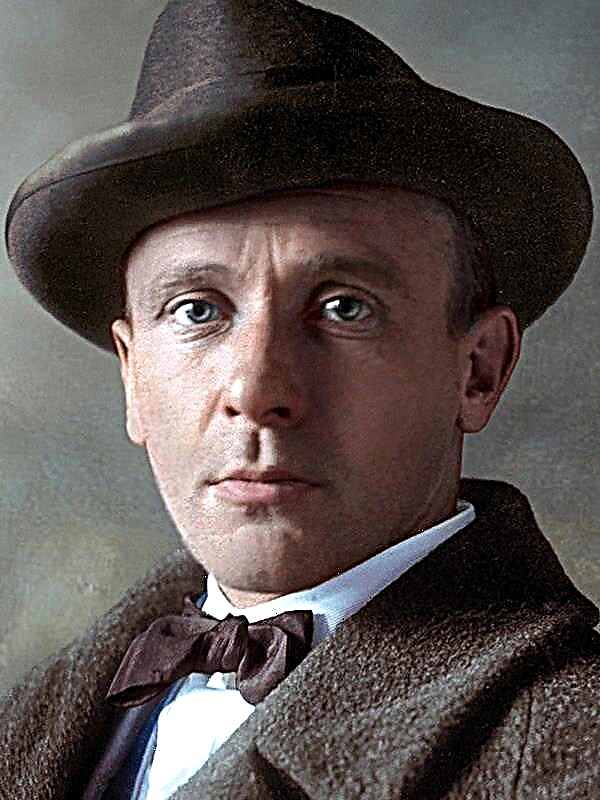
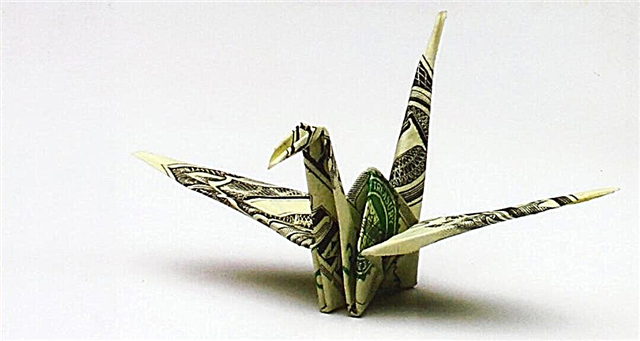 Myself MBA
Myself MBA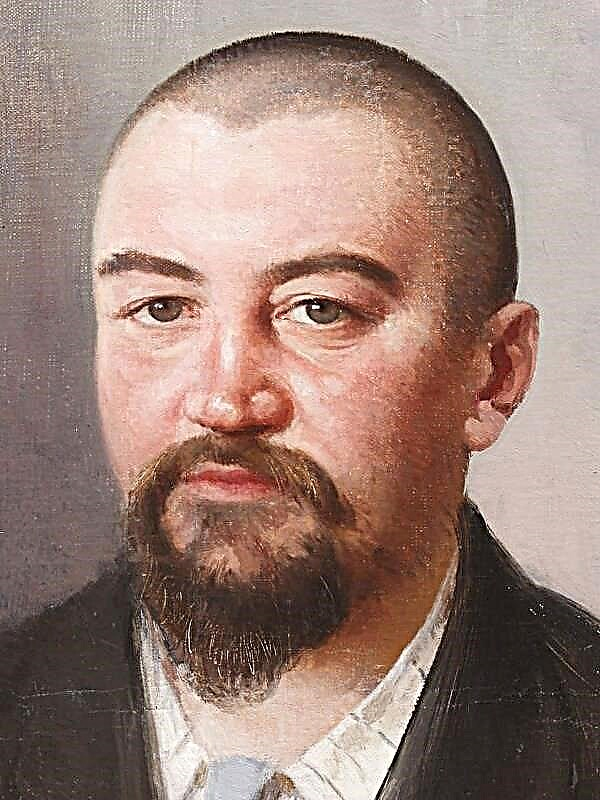
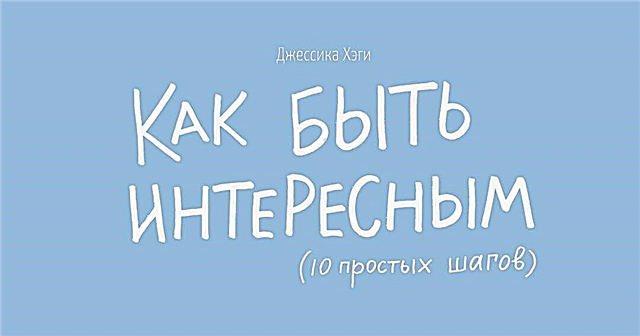 How to be interesting
How to be interesting
